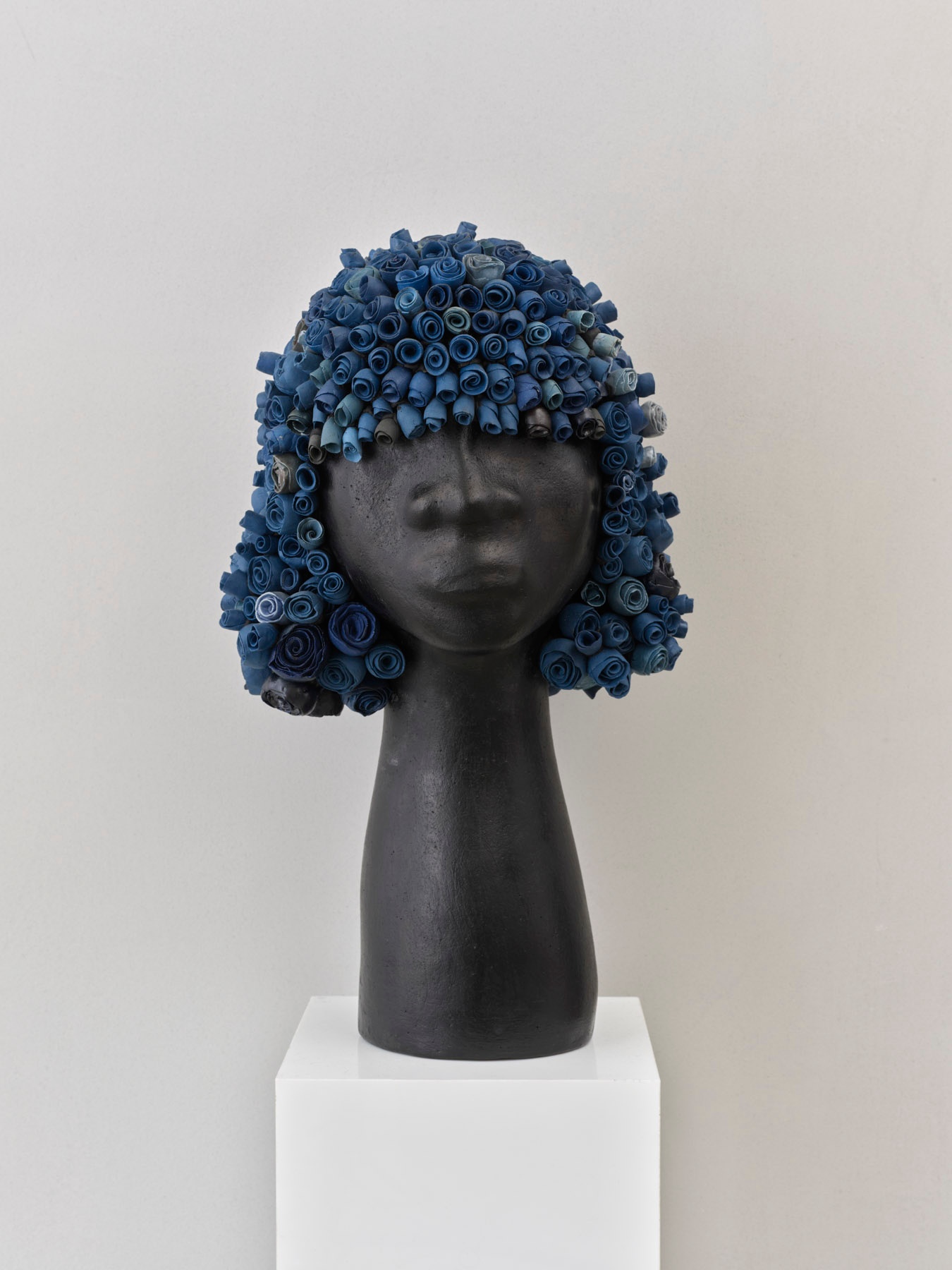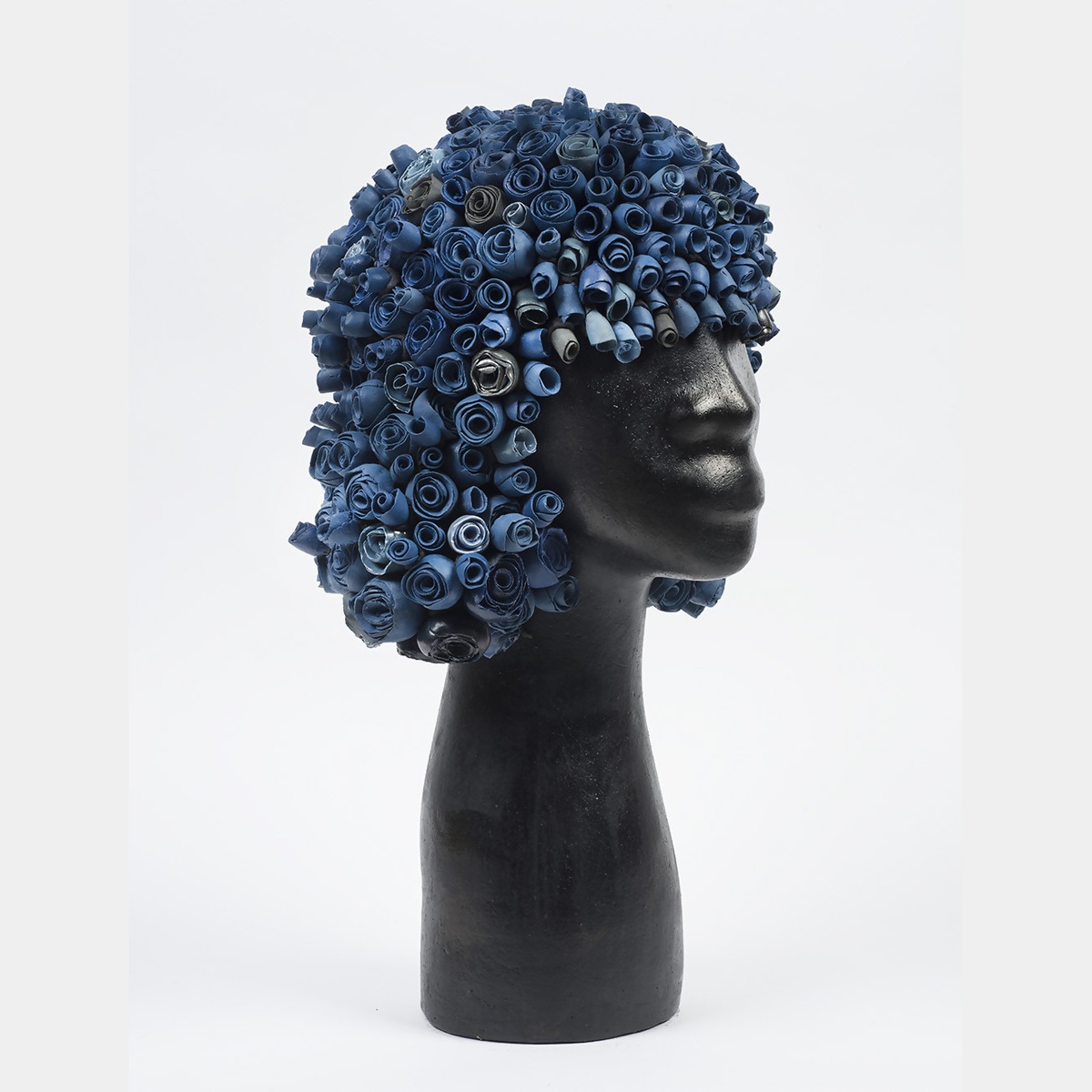Simone Leigh

The weight of Leigh’s figures, their substantial, heavy forms, evoke for the artist “a femininity that’s based on being solid as opposed to fragile.” Most are reduced to stylised figuration, their faces only suggested and seldom detailed. Such is Faience, a bust of a woman with a long neck and filigree hair. Her skin is smooth and black, stained dark with India ink. Made from rolled ribbons of clay, her blue hair hangs low over her forehead in tight curls. The ribbons’ shifting shade is made by mixing ground cobalt into their lead white glaze. On firing, the metal melts, colouring the clay a muted blue. This technique, called 'faience', lends the work its title. Symmetrical and upright, Faience has a commanding presence beyond its scale, its breakable form imbued with the solidity Leigh finds reflected in the feminine.
b.1967, Chicago
Giving form to narratives of resistance and restitution, Simone Leigh’s sculptures are visions of black womanhood. In clay, she finds a material housing for her expansive preoccupations, which include, among others, ethnography, African and diasporic history, feminist theory, and social responsibility. Her sculptures more often take on the shape of women, who appear uniformly without eyes and with few features, as icons of quiet strength. Many are at once woman and object; a vase, a vessel, a shelter, a home. In “fusing the black body with a tool” – with utility – the artist reflects on women’s work, on the value of their collective labours. Leigh’s sculptures speak a creole of references, their distinct language a fusion of contemporary African-American pop-culture, Civil Rights activism, black history, and African architectural traditions. For all the many conceptual strands of her work, Leigh’s sculptures remain grounded in the artist’s commitment to her material, in the alchemy of making earth into image.
